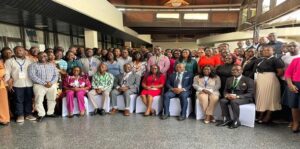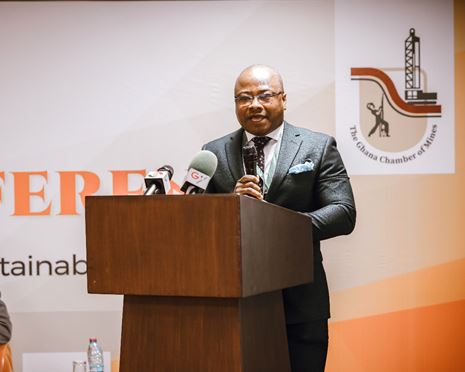By Kizito CUDJOE
The University of Mines and Technology (UMaT) is set to receive a US$2million boost from the Ghana Chamber of Mines Tertiary Education Fund, as part of the Chamber’s ongoing commitment to enhancing mining education in Ghana.
The announcement was made by Edem Akafia, Ghana Chamber of Mines president, at the 6th Biennial Conference on Human Resource Management in the Mining Industry held in Accra.
This funding represents the Tertiary Education Fund’s second tranche and will be disbursed starting in 2025 spread over five years.
The contributions are drawn from the Chamber’s producing member companies and aimed at further strengthening UMaT’s capacity to produce skilled graduates for the mining sector.
The continuation of this funding, he indicated, underlines the Chambers commitment to promoting academic excellence and supporting young talents’ development within the local mining sector.
The first tranche of US$ million from the Chamber had a significant impact on UMaT, providing research grants to faculty members and postgraduate student, as well as bursaries totalling over GH₵1.3million that benefitted more than 1,336 undergraduates.
At the conference, Mr. Akafia also discussed the Chamber’s broader efforts to build a sustainable workforce in the mining industry.

He highlighted the development of a competency framework outlining skill sets for 472 job roles, designed to guide recruitment, training and talent retention across the sector.
“This framework is expected to guide recruitment, training and talent retention efforts, ensuring the industry’s sustainability,” he added.
The Chamber is also collaborating with unions, including the Ghana Mineworkers Union, to enhance productivity and sustainability within the industry.
Mr. Akafia revealed that a proposed Industry Framework Agreement is being developed to guide the operationalisation of current employment models.
Addressing the evolving role of human resources (HR) in the mining sector, Akafia noted: “HR roles will continue to evolve with the integration of technology, AI, sustainable practices and the push for a more inclusive workforce”.
He emphasized the importance of HR professionals in shaping the industry’s future, particularly in aligning workforce management with technological advancements and sustainability goals.
The 6th Biennial Conference, themed ‘Navigating the New Normal: HR Innovations for Sustainable Mining’, brought together industry leaders to discuss challenges and opportunities in the sector.
Chief Executive (CEO) of the Ghana Chamber of Mines, Dr. Sulemanu Koney, acknowledged the multifaceted challenges facing the industry – including talent shortages, skill mismatches and the need for digital transformation.
“We face issues such as talent shortages, skill mismatches and the growing need for digital transformation. Meanwhile, opportunities abound in harnessing technological innovation, embracing diversity and developing the next generation of mining professionals,” Dr. Koney said.
He stressed the need for talent strategies aligned with future industry needs, particularly the integration of automation, artificial intelligence and data analytics.
“These technologies have the potential to improve operational efficiency and safety, but they also require us to rethink our approach to workforce management,” he said.
Dr. Koney also stressed the crucial role of HR in driving sustainability initiatives within the mining sector.
“Sustainable mining practices are increasingly becoming a priority for governments, communities and investors alike. As HR professionals, you are in a unique position to influence the behaviour and mindsets of employees to align with sustainable goals.”










